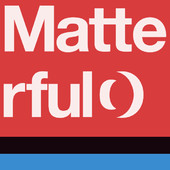Pixar screenwriter reveals building blocks of story
In this Ted talk Andrew Stanton, screenwriter at Pixar, gives us the building blocks of story. He doesn’t lay out these thoughts in a list, but it kind of makes sense to display these elements that way.
- Story telling is joke telling. Knowing your punchline, your ending. Orchestrating everything from first to last towards a singular goal.
- Make me care—emotionally, intellectually, aesthetically… whatever. I know what it means to not care. Make me care.
- A well told promise is like a rock being pulled back in a sling shot, getting ready to propel you forward, through the story, to the end.
- Don’t give the audience 4, give them 2 + 2. The audience actually wants to work for their meal, they just don’t want to know that they’re doing it. The elements you provide and where you place them are crucial. It’s the invisible force that holds our attention to a story.
- All well drawn characters have a spine, an inner motor, a dominant unconscious goal they’re striving for, an itch that they can’t scratch. Michael Corleone wanted to impress his dad. Wall•e wanted to find the beauty.
- Change is fundamental in story. If things go static stories die because life is never static. “Drama is anticipation mingled with uncertainty.” Have you created honest struggle/conflict between characters/themselves? Will Dory remember what Nemo’s dad told her? Will they ever actually find Nemo??
- Storytelling has guidelines not hard and fast rules.
- A story should have a theme. Laurence of Arabia’s is “who are you?” Everything he does is an attempt to figure that out.
- The magic ingredient: can you invoke wonder. The best stories infuse wonder.
- Use what you know, capture a truth from your experience, express values you feel deep down in your core.
